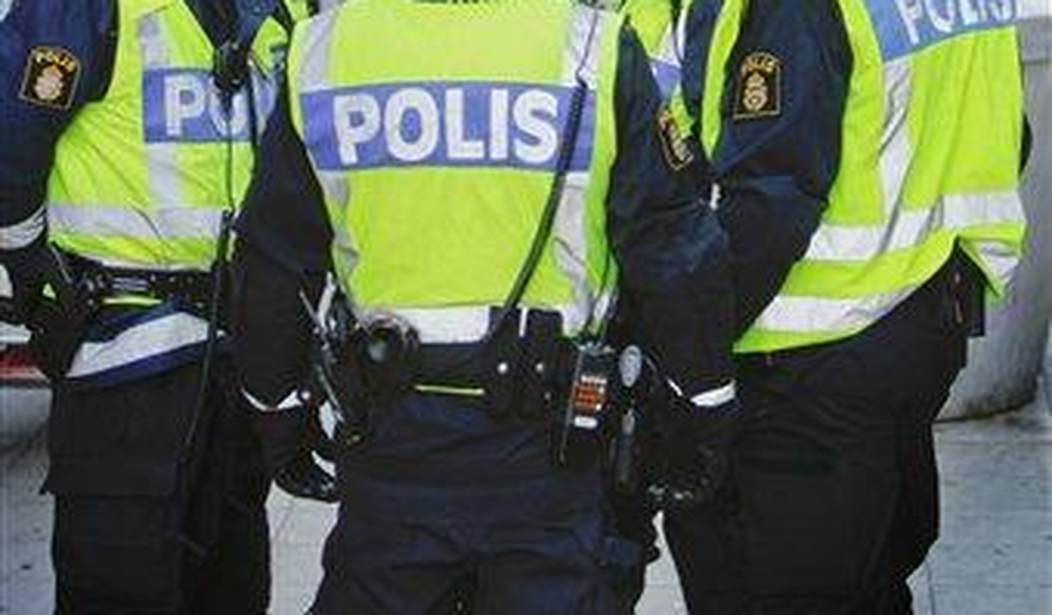As you’ve probably heard, Sweden voted in a very right wing party in the most recent election, making the Sweden Democrats the second largest party in Parliament. Beege wrote about this a few days ago and pointed out the connection to rising crime, including frequent explosions, and immigration.
Last week I read a number of reports about the election in US newspapers and they were all heavy on connecting the Sweden Democrats to Nazis who helped found the party in the 1980s and light on explaining why typically progressive Swedes would suddenly want to vote for such a party in large numbers. Today Bari Weiss’ Substack site published a piece that attempts to fill in the gaps.
Yesterday morning, Swedes woke up to news of a kind that has become all-too familiar: During the night, powerful bombs exploded at apartment buildings in two different towns in southern Sweden.
One person was severely injured in Åstorp, where a witness told the press: “People screamed and cried. It felt so unreal.” A resident told Radio Sweden that his 7-year-old had come running into his bedroom screaming, as the blast made their apartment shake.
In Helsingborg, the explosion was so powerful that, according to the police, cars parked nearby were destroyed. It is still unclear if the bombings are connected to each other, or who is behind them.
Since 2018, there have been almost 500 bombings—yes, bombings—in what is known as one of the most stable societies in the world.
The bombings have been shocking to many people but shootings are also up dramatically.
Murders…are usually settlings of scores between rival gangs often controlled by immigrant clans, according to police, and increasingly taking place in public places in broad daylight.
The violence is primarily attributed to battles over the drug and weapons market and personal vendettas.
It has escalated to the point where Sweden — one of the richest and most egalitarian countries in the world — now tops the European rankings for fatal shootings.
According to a report published last year by the National Council for Crime Prevention, among 22 countries with comparable data only Croatia had more deadly shootings, and no other country posted a bigger increase than Sweden in the past decade.
And the connection between the violence and immigration isn’t merely supposition.
Among shooting suspects, 85 percent are first- or second-generation immigrants, according to the newspaper Dagens Nyheter, as immigrant neighborhoods have become hotbeds for gang crime. National Police Commissioner Anders Thornberg has described the violence as “an entirely different kind of brutality than we’ve seen before” and his deputy, Mats Löfving, says that 40 criminal clans now operate throughout the country. Spreading fear are “humiliation robberies,” targeting children and youth, in which victims are subjected to degrading treatment by assailants, such as being urinated upon. Just this week, four men were sentenced for robbing, beating and urinating on an 18-year-old, who was also filmed by his tormentors…
Meanwhile, the link between immigration and crime was turned into a taboo topic.
Aftonbladet, for instance, argued that there was no need for authorities to publish statistics on immigrants and crime because the very idea was inherently racist. Then-Prime Minister Stefan Löfven reiterated the same notion when he was asked whether immigration had affected crime levels. “We should act against what is wrong and criminal no matter the background and the cause. I don’t want to link crime to ethnicity,” he said in 2020––as if there were no legitimate questions about how his government’s immigration policy had affected crime.
In fact, as the recent election approached, the center left party started pushing new initiatives aimed at cracking down on gang crime connected to immigration.
The center-left Social Democrats — already governing without a majority in Parliament — find themselves in perhaps their most precarious position after a century of dominating Swedish politics.
The government argues that more resources and employment opportunities must also be put toward integrating the segregated, immigrant-heavy suburbs that ring major cities where the gun violence has been concentrated.
But fearful of losing more voters, it has capitulated to public concerns by adopting tougher policies on crime, even as the far right and other conservatives are calling for even harsher steps.
“Too much migration and too weak integration has led to parallel societies where criminal gangs have been able to grow and gain a foothold,” Prime Minister Magdalena Andersson said last month, as she introduced measures expanding police powers and lengthening punishments for serious weapons offenses.
Sweden’s gun crime is still low by US standards but you can at least begin to see why a significant number of Swedes would rather vote for a far-right, anti-immigration party than one that only acknowledged the problem when it felt its back was against the wall with voters.
Update: This Australian show was published in June and does a pretty good job of explaining the problems that led the Sweden Democrats to do well in the most recent election.








Join the conversation as a VIP Member